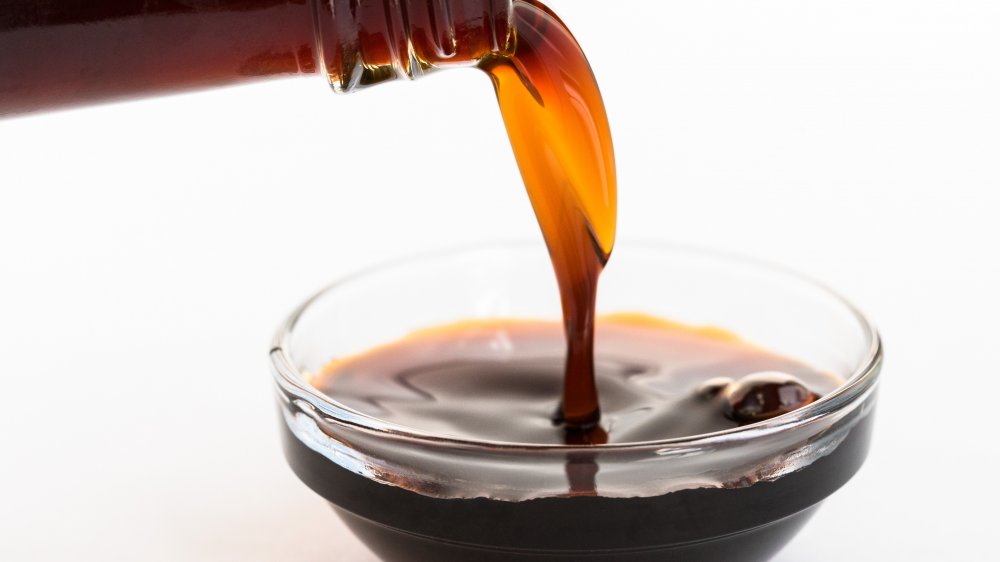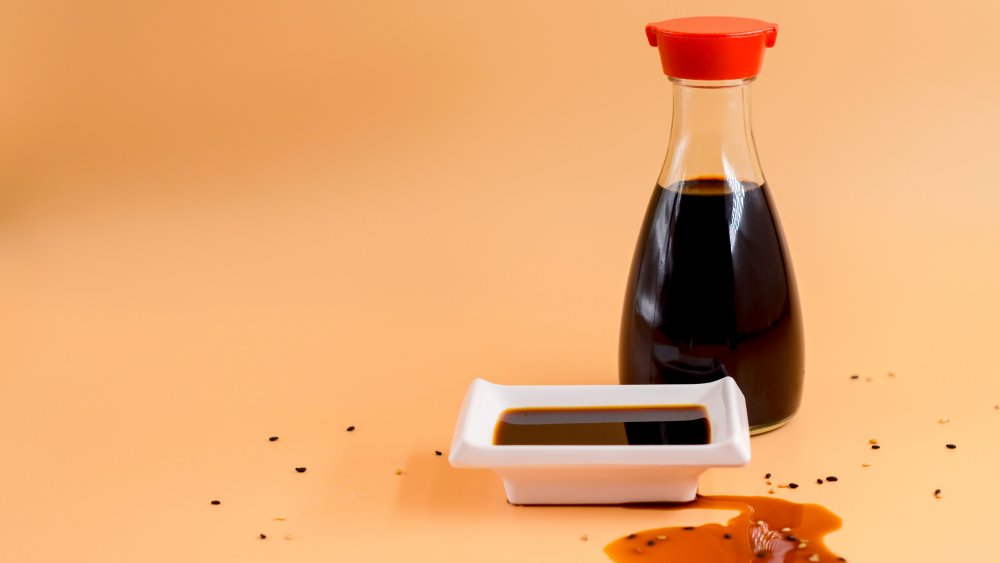The Real Difference Between Soy Sauce And Coconut Aminos
If you're sensitive to soy but a big fan of Asian cuisine, you might have heard of the trendy, new soy sauce alternative called coconut aminos. Healthline says that it, like soy sauce, is made through fermentation, but the similarities don't stop there.
For those who have never tried coconut aminos, the ingredient surprisingly doesn't taste like coconut at all, despite being made from fermented coconut sap and sea salt. Instead, it tastes more like a slightly sweeter, milder version of light soy sauce, almost like teriyaki sauce (via Eat This, Not That). This is, at least in part, because coconut aminos has less sodium content at 90 milligrams per teaspoon compared to 280 milligrams per teaspoon for the same amount of regular soy sauce. Coconut aminos is also a better alternative for people with sensitivities or allergies to soy or wheat, both of which are usually found in traditional soy sauce but not in coconut aminos, according to Healthline. However, whether or not coconut aminos is truly a healthier alternative to soy sauce still remains to be seen.
The misconceptions about coconut aminos
Among coconut aminos' many accolades are the fact that it's lower in sodium than soy sauce, not to mention free of soy, wheat, and gluten, making it a good option for those with some of the most common dietary sensitivities or allergies (though you definitely shouldn't try it if you have a coconut allergy). However, the known benefits pretty much stop there.
Eat This, Not That states that some sources claim coconut aminos can help to reduce your risk of heart disease, diabetes, and even certain cancers, but there haven't been any scientific studies to back up those claims to date. Nutritionally, coconut aminos is slightly higher in (naturally-occurring) sugar, carbs, and calories than soy sauce, but only contains about a third of the sodium according to Women's Health. It also has a lower glycemic index than soy sauce, but in the small amounts of an average serving that fact doesn't made a huge difference (via Yahoo! Life). In fact, there isn't even any evidence that you'd even be getting the nutrients of amino acids found in coconut sap from coconut aminos because the amount of present is so low and is altered by the fermentation process. So, the next time you think about dousing your food with coconut aminos, remember it's not altogether different from soy sauce and should be consumed in moderation, especially because 90 milligrams of sodium per teaspoon is still a lot and adds up quickly.

